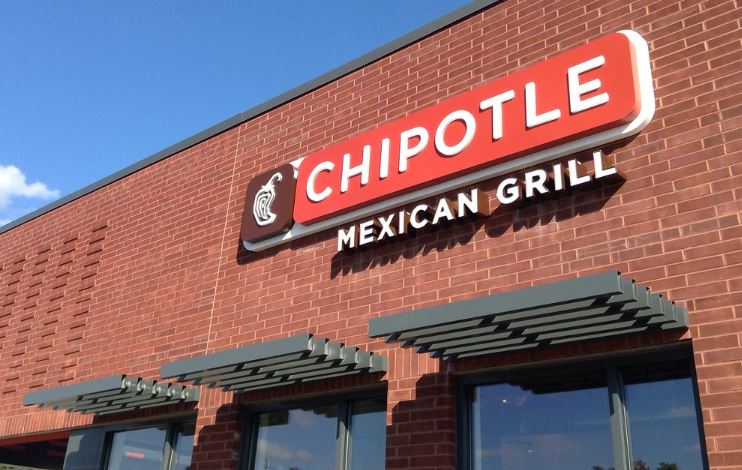One can invest in literally thousands of publicly traded companies, in addition to the plethora of exchange-traded funds (ETFs) and mutual funds available for purchase. The fact that therefore numerous investors do not know where to start is not unexpected.
Moreover, despite the market having recovered substantially from its recent bear market nadir, many equities are currently trading at a substantial discount compared to their valuations a year or two ago.
But as 2024 approaches, which stocks are the most prudent to purchase? While lacking access to a crystal orb that can provide information on the most profitable stocks, I have endeavored to do my best with what I have available. This article will provide an analysis of ten Stocks that, in my opinion, could serve as excellent investments for long-term investors seeking to put their capital to work beyond 2024.
Top Best Stocks To Buy in 2024
| Top 8 Stocks | Market Capitalization |
| Alphabet | 1.93 Trillion |
| Amazon | 1.88 Trillion |
| Berkshire Hathaway | 902.83 Billion |
| Walt Disney | 225.29 Billion |
| Intuitive Surgical | 135.53 Billion |
| Shopify | 99.61 Billion |
| PayPal | 69.91 Billion |
| CrowdStrike | 77.77 Billion |
Overview of Top 10 Stocks
This part will identify the ten stocks that now dominate the US market capitalization.
1. Alphabet Inc
Alphabet Inc. is an American global technological conglomerate holding company based in Mountain View, California. Alphabet is the world’s third-largest technology business by sales and one of its most valued.
In December 2019, co-founders Larry Page and Sergey Brin announced their departure from their leadership positions, with Sundar Pichai, now the CEO of Google, taking over as CEO. Page and Brin continue to work for Alphabet Inc., are on its board, and are controlling shareholders.
Alphabet has a section called Other Bets that owns some attractive early-stage companies. The Waymo self-driving vehicle technology company is likely the most famous, and while none of the Other Bets companies now generate significant revenue, there is much long-term potential.
2. Amazon
Amazon.com Inc. (AMZN), one of the world’s most valuable firms, is a global leader in e-commerce and cloud computing. The company provides an online marketplace that sells a wide range of things, primarily from other merchants, such as electronics, fashion, furniture, food, and toys. It also provides video and music streaming services. Amazon’s cloud services platform hosts web applications for a diverse spectrum of customers.
The Amazon was founded in 1994 as an online bookstore. But Amazon’s founder and former CEO, Jeff Bezos, envisioned the company as more than just an online store. Instead, Bezos viewed Amazon as a technology company with a competitive advantage in simplifying online transactions for consumers.1 Amazon stock began trading after its first public offering (IPO) in May 1997. Amazon stock trades on the Nasdaq Global Select Market.
3. Berkshire Hathaway
Berkshire Hathaway is a holding company for numerous companies, including GEICO and Fruit of the Loom. It is led by Warren Buffett, the chairman and CEO. Berkshire Hathaway is based in Omaha, Nebraska.
Originally, it was a conglomerate of textile milling plants. Buffett took control of the faltering New England firm in 1965. Since then, Berkshire has become one of the world’s largest firms by market capitalization. Today, it is one of the world’s most valuable firms by market capitalization.
Berkshire Hathaway owns around 60 subsidiary firms, including well-known brands such as GEICO, Duracell, and Dairy Queen, to mention a few. Berkshire also holds a $360 billion portfolio of common equities, which includes significant investments in Apple, Bank of America, and American Express, as well as positions in dozens of other companies. Many were exceptionally wise investments, such as the Bank of America stake, which arose from a preferred stock transaction completed in the aftermath of the financial crisis.
4. Walt Disney
The Walt Disney Company (DIS) is a multinational conglomerate specializing in entertainment, media, parks, resorts, and a wide range of consumer items. Disney controls some of the most well-known television networks in the United States, including Disney, ABC, and ESPN.
The corporation also runs prominent amusement parks worldwide and makes movies, animations, and events for children and adults. With a well-known brand and a very profitable sports channel, Walt Disney increased its net profits to $12.6 billion in 2018. However, the corporation lost $2.83 billion in 2020 and $2.02 billion in 2021.
As a result of its previous great financial performance, Walt Disney was able to continuously pay and grow dividends year after year, making it an appealing alternative for income-seeking investors.
5. Intuitive Surgical
Intuitive Surgical, Inc. is the most valuable American corporation that develops, manufactures, and markets robotic equipment aimed at improving patient clinical outcomes through minimally invasive surgery, most notably the da Vinci Surgical System. The company is a member of the NASDAQ-100 and the S&P 500.
Robot-assisted surgery outperforms unsteady human hands. That general concept hasn’t altered much since I first discovered Intuitive Surgical shares in 2005. The da Vinci surgical system is the clear industry leader, and its “razors and blades” approach allows Intuitive to earn a consistent source of money.
Intuitive Surgical dominates its industry, accounting for over 80% of the global market. And it has plenty of space to expand as its surgical systems become more widely used and the number of procedures supported grows. This is especially true in many international markets, where the adoption of robot-assisted surgery could serve as a long-term growth engine for this outstanding sector for decades to come.
6. Shopify
Shopify is a platform that enables businesses of all sizes to sell their products online, with a special emphasis on supporting smaller businesses and developing alongside them through long-term relationships.
Shopify provides a subscription plan for businesses starting at $39 per month, as well as numerous more services that help businesses run efficiently, such as payment processing and shipping.
Shopify’s “one-stop shop” approach to e-commerce has transformed it into a behemoth. It now has more e-commerce sales passing through its ecosystem than any other company except Amazon. However, Shopify could be only getting started.
The platform has produced $6.7 billion in revenue over the last four quarters. However, this represents only a portion of the estimated $153 billion (and growing) market opportunity as more retailers turn their focus to online sales.
Shopify’s stock price remains considerably below the highs reached during the recent market slump due to recession fears and indicators of a slowdown in consumer spending, and the company appears to be a solid long-term investment opportunity.
7. PayPal
PayPal is an online payment system that allows you to send and receive money all over the world. You may link your bank account, credit card, or debit card. You may potentially have a balance in your PayPal account.
PayPal was founded in 1998 as Confinity and went public in 2002 with an initial public offering. Later that year, it was acquired by eBay as a wholly-owned subsidiary for $1.5 billion. PayPal was spun off to its shareholders in 2015, and the corporation regained its independence. The company was rated 143rd on the 2022 Fortune 500 list of the top US corporations based on revenue.
MUST READ-Top 10 Best American Stocks to Invest and Buy in Long-Term with High Growth
PayPal and Venmo have about 430 million active users, and the company processes approximately $1.3 trillion in annual payment volume. The company generates around $5 billion in free cash flow per year and has aggressively used it to buy back its stock, indicating that management believes it is undervalued.
8. CrowdStrike
CrowdStrike Holdings, Inc. is a Texas-based American cybersecurity technology corporation. It provides cyberattack response, threat intelligence, cloud workload, and endpoint security. Several high-profile cyberattacks, including the 2014 Sony Pictures breach, the 2015–16 cyber attacks on the Democratic National Committee (DNC), and the 2016 email leak involving the DNC, have been investigated by the organization.
CrowdStrike analyzes security data collected from each of its numerous users to automate network-wide security. This enhances the platform’s capability to identify the most recent threats, and its effectiveness further improves as a greater number of users embrace CrowdStrike’s solutions, referred to as its Falcon platform. In addition to its dominant market share, its utilization of crowdsourced threat data provides a competitive edge over rivals.
CrowdStrike has achieved a 75% gross margin and nearly $3 billion in annual recurring revenue, which is a testament to its impressive growth thus far. However, this success may only be the start. The organization currently assesses the addressable market as having a potential revenue of $76 billion and projects that by 2026, this opportunity will have more than doubled to $158 billion.
Frequently Asked Questions-
What is the future of Alphabet stock?
The highest analyst price goal is $175.00, while the lowest forecast is $150.00. The average price target represents a 7.55% increase over the current price of $152.26.
What will Amazon stock be worth in 2025?
Amazon’s stock estimate for 2025 is $236.97, based on a yearly growth rate similar to the past decade. This would result in a 28.45% increase in AMZN’s stock price.
Is Berkshire a good investment?
Berkshire’s stock has typically performed well, gaining at a CAGR of 9.5% (13.3%) from 2018 to 22 (2013 to 22), compared to the S&P 500 TR Index’s average annual return of 9.4% (12.6%).
How much is a Disney stock?
Disney presently holds 1,834,302,235 outstanding shares. Disney stock is trading at $122.36 per share.
How much is PayPal worth now?
PayPal’s market capitalization as of April 2024 is 69.91 billion. According to our statistics, PayPal is the world’s 264th most valuable corporation in terms of market capitalization.



